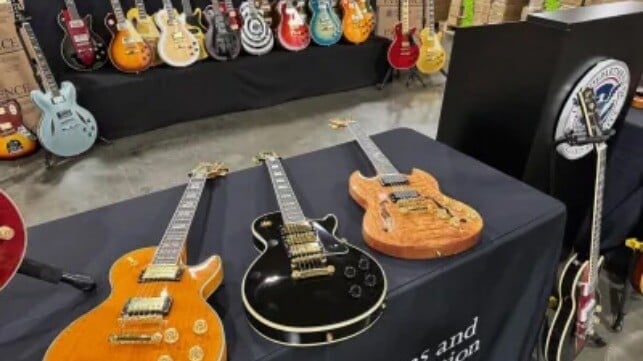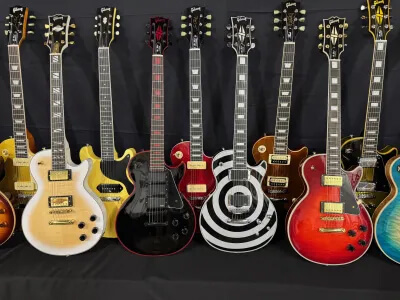Fake Gibson Guitars Worth $18M Seized at Los Angeles/Long Beach Ports

U.S. Customs and Border Protection (CBP) announced the seizure of the 3,000 guitars that were intercepted at the Los Angeles/Long Beach Seaport. The counterfeit Gibson electric guitars, which originated from Asia, would have been worth an estimated $18 million had they been genuine.
They were seized after authorities flagged suspect containers and represented one of the largest seizures of counterfeit musical instruments. CBP, which apprehended the fake guitars working in conjunction with Homeland Security Investigations, the Los Angeles County Sheriff’s Department, and Gibson representatives, did not reveal the country of origin or vessel that transported the suspect containers.
Gibson confirmed that the red, black, and orange electric guitars, including knockoffs of its famous Les Paul models, were counterfeit. The company confirmed to the authorities that its authentic guitars are only made in the U.S.
The seizure of the fake electric guitars comes as Gibson is celebrating its 130th anniversary this year. For the iconic brand that was founded in 1902 in Kalamazoo, Michigan, the seizure was a major win in determination to protect its legacy of quality and craftsmanship, legendary music partnerships with artists, and efforts to promote and create more musicians.
Cheryl M. Davies, CBP Director of Field Operations in Los Angeles, said the fake Gibson guitars could have ended in the hands of unsuspecting consumers through e-commerce, street markets, unauthorized retailers, and person-to-person transactions.

Ranked among the busiest container operations in the U.S., the ports of Los Angeles and Long Beach continue to record significant seizures of counterfeit goods. China and Hong Kong are the key sources of fake goods, with seizures from the two Asian countries accounting for 46 percent of counterfeit seizures and 84 percent of the value of counterfeit seizures. CBP highlights that a record-breaking $1 billion worth of counterfeit products were seized in 2022. That compares with the total cargo worth about $300 billion that passed through at the twin ports last year.
“Counterfeit goods fund criminal enterprises that engage in forced labor, smuggling, drug trafficking, and other illicit activities,” said Africa R. Bell, LA/Long Beach seaport CBP Port Director. “Counterfeiters are only interested in making a profit – they do not care about you or your family’s well-being or the well-being of our economy.”
CBP said it has developed proactive, aggressive, and dynamic enforcement measures to deter the importation of illicit goods and protect U.S. consumers and businesses, the objective of which is to fight intellectual property thefts. This comes when the menace of counterfeits is worsening, with the agency seizing 19,724 shipments containing goods that violated Intellectual Property Rights (IPR) in the 2023 fiscal year. This equates to nearly 23 million counterfeit goods with a value of a staggering $2.7 billion if they were genuine.
